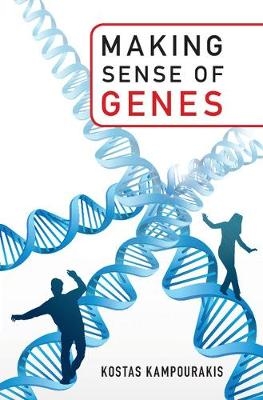
Making Sense of Genes
Cambridge University Press (Verlag)
978-1-107-12813-2 (ISBN)
What are genes? What do genes do? These seemingly simple questions are in fact challenging to answer accurately. As a result, there are widespread misunderstandings and over-simplistic answers, which lead to common conceptions widely portrayed in the media, such as the existence of a gene 'for' a particular characteristic or disease. In reality, the DNA we inherit interacts continuously with the environment and functions differently as we age. What our parents hand down to us is just the beginning of our life story. This comprehensive book analyses and explains the gene concept, combining philosophical, historical, psychological and educational perspectives with current research in genetics and genomics. It summarises what we currently know and do not know about genes and the potential impact of genetics on all our lives. Making Sense of Genes is an accessible but rigorous introduction to contemporary genetics concepts for non-experts, undergraduate students, teachers and healthcare professionals.
Kostas Kampourakis is a researcher in science education at Université de Genève, where he also teaches the course Biology and Society to biology undergraduates, and various science education classes to teachers and doctoral students. He is the Editor-in-Chief of the journal Science and Education, the co-editor of Newton's Apple and Other Myths about Science (with Ronald L. Numbers, 2015), and the editor of The Philosophy of Biology: A Companion for Educators (2013). His book Understanding Evolution (Cambridge, 2014) was selected as a 2015 Choice Outstanding Academic Title.
Acknowledgments; Prolegomena: genes, science and science fiction; 1. Mendel and the origins of the 'gene' concept; 2. The genes of classical genetics; 3. The molecularization of genes; 4. So, what are genes?; 5. 'Genes for' (almost) everything; 6. Are there 'genes for' characters?; 7. Are there 'genes for' diseases?; 8. So, what do genes do?; 9. Genes are implicated in the development of characters; 10. Genes account for variation in characters; 11. Genomes are more than the sum of genes; 12. Limitations in the study of genomes; Concluding remarks: how to think and talk about genes?; Further reading; References; Glossary.
| Erscheinungsdatum | 02.04.2017 |
|---|---|
| Zusatzinfo | 10 Tables, black and white; 36 Halftones, black and white; 61 Line drawings, black and white |
| Verlagsort | Cambridge |
| Sprache | englisch |
| Maße | 158 x 235 mm |
| Gewicht | 630 g |
| Themenwelt | Studium ► 2. Studienabschnitt (Klinik) ► Humangenetik |
| Naturwissenschaften ► Biologie ► Genetik / Molekularbiologie | |
| Technik ► Umwelttechnik / Biotechnologie | |
| ISBN-10 | 1-107-12813-7 / 1107128137 |
| ISBN-13 | 978-1-107-12813-2 / 9781107128132 |
| Zustand | Neuware |
| Informationen gemäß Produktsicherheitsverordnung (GPSR) | |
| Haben Sie eine Frage zum Produkt? |
aus dem Bereich


